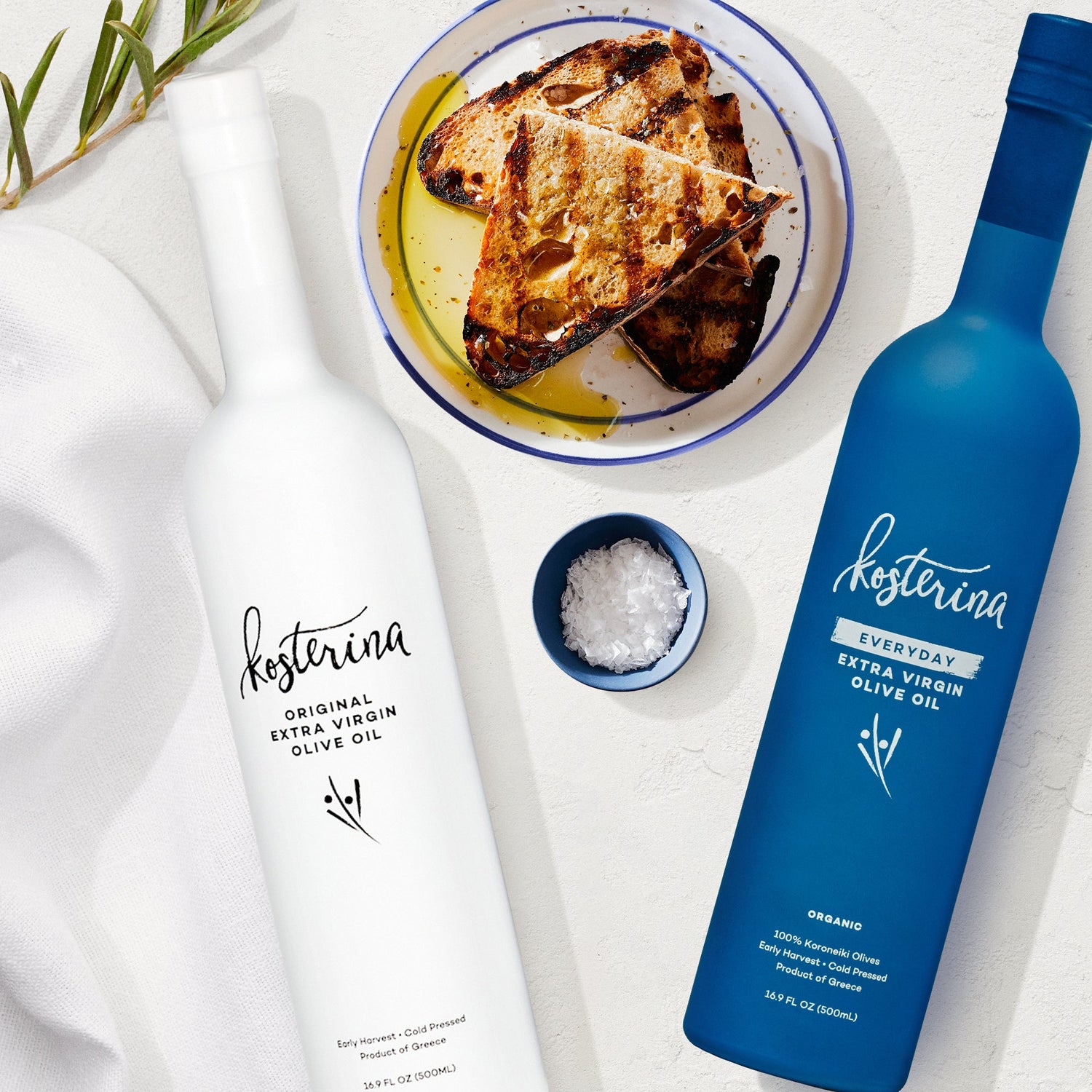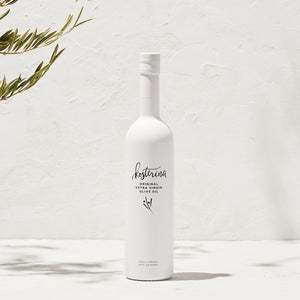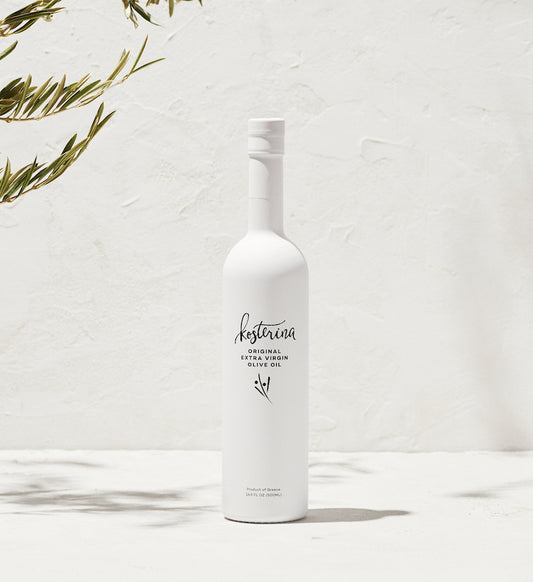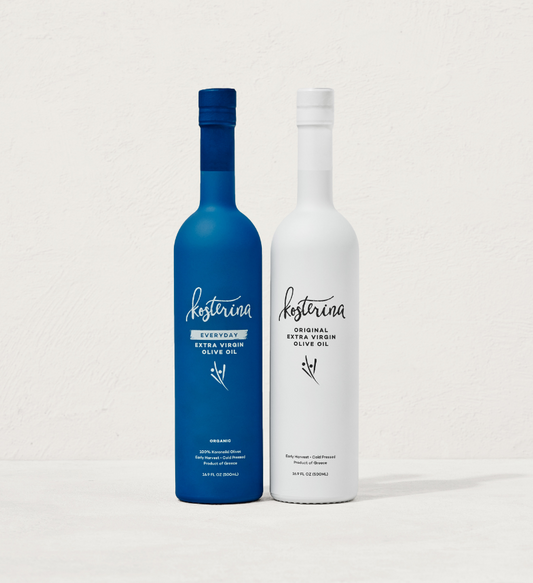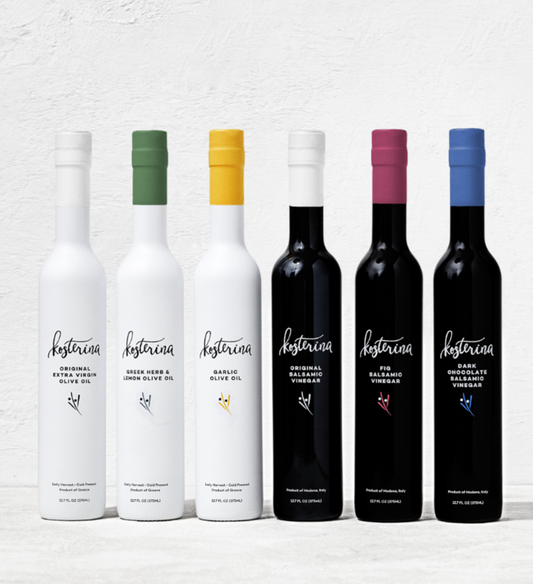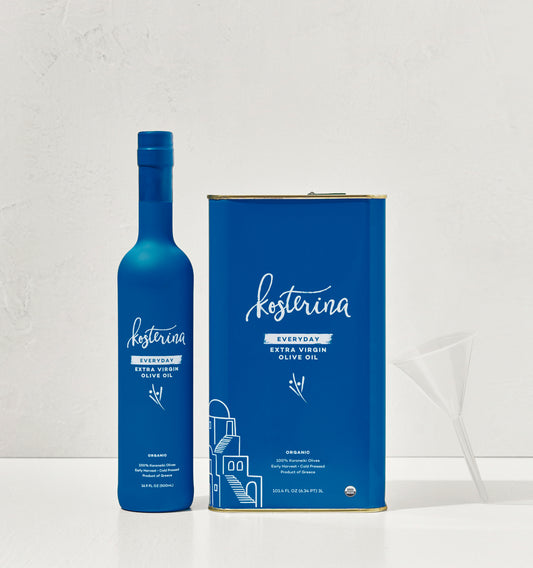Dear Kosterina Family,
With the 2024 Olympic Games in Paris just around the corner, I can't help but reminisce about the magical summer of 2004 in Athens. Standing amidst the electrifying energy of the Opening Ceremony, my heart swelled with pride for Greece. Athens had pulled off the impossible, building arenas and venues and transforming the city into a dazzling stage for the world to see. That summer, I was spellbound as I watched Michael Phelps glide through the water, collecting gold medals like they were souvenirs. And even Olympic-level beach volleyball stole my heart. It was a time of incredible feats and unforgettable moments.
As we approach the Paris Games, this time, I have olive oil on the mind. The liquid gold on our tables each and every day in the US has played a significant role in the history of the Olympics since the start of the Games in ancient Greece. The ancient Olympics, which began in 776 BCE in Olympia, were not only a celebration of athletic prowess but also deeply intertwined with Greek culture, religion, and daily life. Olive oil was a crucial element in these games, symbolizing purity, health, and athletic excellence. It has been truly fascinating uncovering the immense importance this precious elixir has played in our history.
Prize for Victors
In ancient Greece, victors of the Olympic games were awarded olive wreaths made from the sacred wild olive tree in Olympia. This tree was said to have been planted by Hercules, adding a divine element to the prize. In addition to the wreaths, winners were often given amphorae filled with the finest olive oil, a highly valued commodity. This prize was not only a symbol of victory but also a practical reward, as olive oil was an essential part of Greek life, used for cooking, lighting, and personal care.
Rituals and Training
Olive oil was integral to the rituals and training of ancient Olympians. Athletes would anoint their bodies with olive oil before training and competing, a practice believed to provide multiple benefits. It helped to protect their skin from the sun (it’s true that olive oil can actually act as sunscreen), reduce muscle fatigue, and enhance their physical appearance. The glistening of oiled bodies also highlighted the athletes' musculature, celebrating the ideal of physical perfection that was central to Greek culture.
Religious Significance
The connection between olive oil and the Olympics extended beyond the athletic arena into the realm of religion. The ancient games were held in honor of Zeus, the king of the Greek gods, and were part of a religious festival. Olive oil, considered sacred, was used in various religious ceremonies and rituals during the Olympics. Temples and altars dedicated to Zeus and other gods were often adorned with olive branches, and olive oil was used in sacrificial offerings.
Legacy and Influence
The legacy of olive oil in the Olympics has endured through the centuries. While the modern Olympic games have evolved, the symbolism of olive oil remains embedded in the cultural memory of the event. Today, the olive branch continues to symbolize peace and goodwill, values that are central to the spirit of the Olympic Games.
The legacy of olive oil in the Olympics is a testament to its enduring significance in Greek culture and its timeless connection to health, excellence, and celebration.
And because we can’t help ourselves, here are some fun recipes for your Olympics viewing parties:
Check out more healthy options here
In the EVOO Olympics, we think Kosterina premium extra virgin olive oil is definitely in the running to win gold this year :)
Join us in celebrating all the athletes at the 2024 Paris Olympics this year and especially Giannis Antetekoumpo carrying the Greek flag at the Opening Ceremony!
Peace, Love, & EVOO,
Katina and The Kosterina Team
